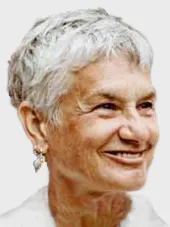Short CV
Prof. Furth earned her M.D. from Yale University in 1979, focusing her career on disease pathophysiology. She received specialized training in internal medicine and infectious diseases. Her academic journey centered on using experimental genetics to examine specific risk factors while exploring how social and environmental factors impact disease expression. Early on, she studied viral pathophysiology, particularly with HIV and papillomavirus at the University of Maryland. She established a pioneering clinic in 1986, prioritizing care for both women and men with HIV and integrating social and legal services. This experience led her towards investigations of how hormonal factors modify disease, which evolved into a focus on estrogen signaling in breast cancer risk. In 2001, she joined Georgetown University, where her research expanded to include lesser-explored cancers and she founded a cancer survivorship clinic. Here, she provided personalized guidance on modifiable risk factors, including physical activity. In 2013, she was appointed Associate Dean for Faculty Development, designing and implementing programs to facilitate and stimulate faculty growth. With the Anna Boyksen Fellowship, Prof. Furth aims to delve into experimental bioinformatics for advancing genetic definitions of breast cancer risk while collaborating with the TUM community on gender and diversity issues in science and engineering.
Selected Awards
- 2023: Anna Boyksen Fellow at the TUM Institute for Advanced Study
- 2021: Women in Pathology Spotlight, American Society of Investigative Pathology
- 2020: Excellence in Mentorship Award in M.S. Biochemistry and Molecular Biology program, Georgetown University
- 2019: Golden Apple Hoya Clinic Award Nominee, Georgetown University
- 2018: Estelle Ramey Mentorship Award, Georgetown University
- 2015: Teaching Academy, Principal Member in Direct Teaching
- 2015: Graduate Fellow, 2014-2015 Class of the Hedwig van Ameringen Executive Leadership in Academic Medicine (ELAM) Program for Women
- 2010: Georgetown Women in Medicine (GWIM) Outstanding Achievement Award
- 2009: World Class University Faculty, Dankook University, Cheonan, South Korea
- 2007: Noel Soderberg Evans Award, Washington, DC
Research Interests
The field of bioinformatics, with its ability to process and analyze data derived from different clinical, experimental, and epidemiological platforms, provides an opportunity to define at-risk biomarkers for the development of breast cancer. Historically most studies of breast cancer risk have focused on cisgender women despite the fact that breast cancer develops in all gender expressions including cisgender men, transgender women (Male-to-Female (MtF), and transgender men (Female-to-Male (FtM). The degree of activation of the estrogen signaling pathway is a known modifier of breast cancer risk. Here we will exploit the potential of experimental bioinformatics to investigate possible roles for circular RNAs in the regulation of estrogen signaling in mammary tissue before and after breast cancer development in addition to investigating how expression of circular RNAs may be modified in response to anti-hormonals. We will focus on the potential role of circular RNAs in the pathophysiology of breast cancer development as well as their possible use as biomarkers defining breast cancer risk within different gender expressions.
Selected Publications
- Hoffmann M, Schwartz L, Ciora OA, Trummer N, Willruth LL, Jankowski J, Lee HK, Baumbach J, Furth PA, Hennighausen L, List M. circRNA-sponging: a pipeline for extensive analysis of circRNA expression and their role in miRNA sponging. Bioinform Adv. 2023, 3:vbad093. doi: 10.1093/bioadv/vbad093. PMID: 37485422; PMCID: PMC10359604.
- Lee HK, Hoechstetter MA, Buchner M, Pham TT, Huh JW, Mueller K, Zange S, von Buttlar H, Girl P, Woelfel R, Brandmeier L, Pfeuffer L, Furth PA, Wendtner C-M, Hennighausen L. Analysis of immune responses in CLL patients after heterologous COVID-19 vaccination. Blood adv, 2023, 2022008445. doi: 10.1182/bloodadvances.2022008445 PMID: 36630562 PMCID: PMC9906673.
- Furth PA, Wang W, Kang K, Rooney BL, Keegan G, Muralidaran V, Wong J, Shearer C, Zou X, Flaws JA. Over-expression of Estrogen Receptor alpha in mammary glands of aging mice is associated with a proliferative risk signature and generation of ER+ mammary adenocarcinomas. Am J Path, 2023, 193:103-120. doi: 10.1016/j.ajpath.2022.09.008 PMID: 36464513 PMCID: PMC9768686.
- Furth PA, Wang W, Kang K, Rooney BL, Keegan G, Muralidaran V, Zou X, Flaws JA. Esr1 but not CYP19A1 over-expression in mammary epithelial cells during reproductive senescence induces pregnancy-like proliferative mammary disease responsive to anti-hormonals. Am J Pathol. 2023, 193:84-102. doi: 10.1016/j.ajpath.2022.09.007 PMID: 36464512 PMCID: PMC9768685.
- Rooney BL, Rooney BP, Muralidaran V, Wang W, Furth PA. Mouse mammary gland whole mount density assessment across different morphologies using a bifurcated program for image processing. Am J Path, 2022, 192:1407-1417. doi: 10.1016/j.ajpath.2022.06.013. PMID: 36115719; PMCID: PMC9552022.2022.
- Alothman SJ, Kang K, Liu X, Krawczyk E, Azhar AI, Hu R, Goerlitz D, Kallakury BV, Furth PA. Characterization of Transcriptome Diversity and In Vitro Behavior of Primary Human High-Risk Breast Cells. Scientific Reports, 2022, 12:6159. https://doi.org/10.1038/s41598-022-10246-4 PMID: 35459280 PMCID: PMC9033878.
- Lee HK, Knabl L, Moliva JI, Knabl Sr. L, Werner AP, Boyoglu-Barnum S, Kapferer S, Pateter B, Walter M, Sullivan NJ, Furth PA*, Hennighausen L*. mRNA vaccination in octogenarians 15 and 20 months after recovery from COVID-19 elicits robust immune and antibody responses that include Omicron. Cell Reports, 2022, 39:110680. https://doi.org/10.1016/j.celrep.2022.110680 *Corresponding authors. PMID: 35395191; PMCID: PMC8947943.
- Lee HK, Knabl L, Walter M, Knabl Sr L, Dai Y, Füßl M, Caf Y, Jeller C, Knabl P, Obermoser M, Baurecht C, Kaiser N, Zabernigg A, Wurdinger GM, Furth PA* and Hennighausen L. *Prior vaccination exceeds prior infection in eliciting innate and humoral immune responses in Omicron infected outpatients. Frontiers in Immunology, 2022, 13. Doi:10.3389/fimmu.2022.916686 *Corresponding authors. PMID: 35784346 PMCID: PMC9240221.
- White KR, Lu J, Ibrahim Z, Furth PA. Enabling Exercise Prescription for Survivors of Cancer. Scientific Reports 2021, 11:9557. DOI: 10.1038/s41598-021-89021-w. PMID: 33953311 PMCID: PMC8100108.
- Lee HK, Knabl L, Pipperger L, Volland A, Furth PA, Kang K, Smith HE, Knabl Sr.L, Bellmann R, Bernhard C, Kaiser N, Ganzer H, Strohle M, Walser A, von Laer D, Hennighausen L. Immune transcriptomes of highly exposed SARS-CoV-2 asymptomatic seropositive versus seronegative individuals from the Ischgl community. Scientific Reports 2021 11:4243. doi: 10.1038/s41598-021-83110-6. PMID: 33608566 PMCID: PMC7895922.
Publications as TUM-IAS-Fellow
